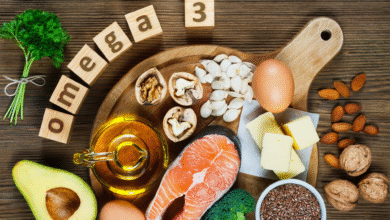5 Common Supplement Mistakes That Can Harm Your Liver and Kidneys

Dietary supplements are often promoted as miracle enhancers — powders and pills that promise stronger bones, glowing skin, and boundless energy. But behind the flashy labels and “100% natural” claims lies a lesser-discussed reality: certain supplements, when misused, can silently damage your liver and kidneys.
These vital organs quietly work around the clock, filtering waste, balancing chemicals, and maintaining the body’s internal environment. However, making poor supplement choices can overload them — often with consequences that aren’t noticed until it’s too late.
According to The Times of India, here are five common mistakes that could harm your liver and kidneys over time:
1. Not Checking for Drug Interactions
Many herbal supplements — like comfrey, kava, or high-dose green tea extract — are marketed as health boosters. However, some of these can be toxic to the liver, especially when combined with prescription medications or over-the-counter drugs.
Herbal compounds may interfere with drug metabolism, forcing the liver to work overtime. At the same time, the kidneys are burdened with filtering unfamiliar substances, increasing the risk of inflammation or long-term damage.
Takeaway: Always consult a healthcare provider before mixing supplements with medications — even if they’re natural.
2. Overusing Protein Powders
Protein is essential, but overconsumption — especially from supplements like whey or casein — can produce nitrogen waste, which the kidneys must eliminate. While healthy kidneys may adapt, people with borderline kidney function may experience accelerated decline.
Fitness enthusiasts often double or triple recommended protein doses, assuming more is better. In reality, this silent overload can reduce kidney efficiency over time.
Takeaway: Stick to recommended protein levels and focus on balanced nutrition from whole foods.
3. Taking Multiple Supplements with the Same Ingredients
Multivitamins, immunity boosters, and hair growth tablets often share ingredients like vitamin A, iron, or selenium. Taking multiple products simultaneously can cause unintentional overdoses.
For instance, excess vitamin A can be highly toxic to the liver, and iron overload tends to accumulate in organs like the liver, leading to inflammation or even fibrosis. These overlaps often go unnoticed because labels don’t always highlight them clearly.
Takeaway: Always read the back label and avoid stacking supplements with overlapping nutrients.
4. Using Fat Burners and Detox Pills
Many detox and weight-loss supplements contain stimulants, diuretics, or laxatives that alter kidney filtration rates abnormally. Ingredients like synephrine, anhydrous caffeine, or dandelion extract may sound harmless — but they can cause dehydration, electrolyte imbalances, and kidney strain.
Additionally, your liver must process artificial additives found in these supplements, often leading to oxidative stress. Ironically, detox pills that claim to cleanse your body may increase toxic load on your vital organs.
Takeaway: Be skeptical of “quick detox” products and remember that the body detoxes naturally — with the help of a healthy liver and kidneys.
5. Ignoring Health Conditions and Individual Needs
Chronic conditions like high blood pressure, diabetes, or fatty liver are increasingly common — and not all supplements are safe for everyone.
Take creatine, for example. While popular among gym-goers, it may worsen kidney function in those already at risk. Similarly, high doses of vitamin D or calcium without proper testing may lead to kidney calcification, increasing the chances of stones or chronic damage.
Takeaway: Supplements aren’t one-size-fits-all. Health conditions must be taken into account, and blood levels should be monitored regularly.
Final Advice: Always Consult a Doctor
Starting a supplement routine without medical guidance is like driving a car with no brakes — it may go fast, but control is questionable. The real damage often happens quietly over the years.
A balanced diet remains the most reliable way to nourish the body. And before reaching for a bottle of supplements, always consult a healthcare provider — especially if you’re already managing a health condition.






